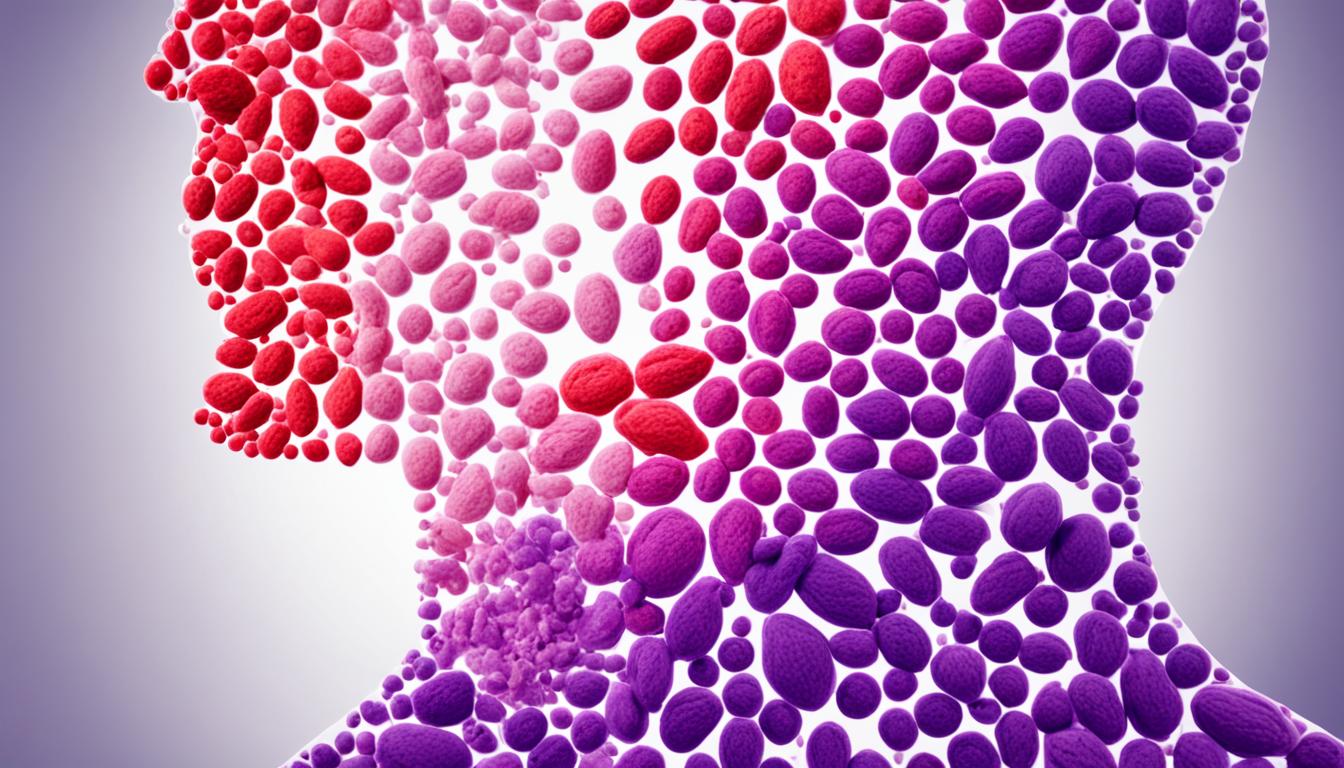Lymphoma Hodgkin’s is a cancer that starts in the lymph nodes. It’s a part of the body’s immune system. This disease causes the lymph nodes to swell and form growths.
The main cause of Hodgkin’s lymphoma is not yet clear. But, we know some things that can raise the risk. This includes some infections, family history, and age. Finding it early is key to treating it well.
Signs of Hodgkin’s lymphoma include swollen lymph nodes, feeling tired, and losing weight. You might also have a fever, sweat at night, or itch. Pain in the lymph nodes after drinking can also be a sign. If you have these symptoms, see a doctor right away.
To diagnose Hodgkin’s lymphoma, the doctor will do a physical exam and some tests. These might include blood tests, CT scans, and PET scans. They will likely also need to do a biopsy.
Nowadays, treatments for Hodgkin’s lymphoma are better than ever. Options include chemotherapy, radiation, and new targeted drugs. Stem cell therapy is also now used. Research in this field continues to look for better ways to help patients.
Key Takeaways:
- Lymphoma Hodgkin’s targets the lymph nodes and is a part of the immune system.
- Its symptoms include tiredness, swelling in the lymph nodes, weight loss, and itching.
- Diagnosing it involves various tests and a biopsy.
- Chemotherapy, radiation, and stem cell therapy are used to fight Hodgkin’s lymphoma.
- New therapies are constantly being developed to improve patient care.
Understanding Lymphoma and its Impact on the Body
Lymphoma is cancer that starts in the lymphatic system. This system is key to fighting illnesses in our bodies. Hodgkin’s lymphoma is one of these cancers. It affects organs like the spleen, thymus, and lymph nodes.
In Hodgkin’s lymphoma, a kind of white blood cell starts growing too much. This causes tumors or swollen lymph nodes. We’re not sure exactly why this happens, but we know some things that make it more likely. These include infections, family history, and age.
If you have Hodgkin’s lymphoma, you might notice a few things. Your lymph nodes could swell but not hurt. You might feel tired a lot, have fevers, sweat at night, lose weight, or feel itchy. Also, your lymph nodes could hurt after drinking alcohol.
Doctors find Hodgkin’s lymphoma with tests like bloodwork and scans. They also do a biopsy, which means they take a small part of the lymph node’s tissue to check it.
For treatment, doctors have a few choices. They might use drugs (chemo), radiation, certain medications, or a transplant of stem cells. These ways to treat it have grown a lot. Because of this, many people with Hodgkin’s lymphoma get better and stay healthy for a long time.
The Promise of Stem Cell Therapy in Hodgkin’s Lymphoma Treatment
Stem cell therapy brings new hope for Hodgkin’s lymphoma treatment. Stem cells can change into various cell types, offering chances for management and recovery from this disease.
In treating Hodgkin’s lymphoma, stem cell therapy involves putting healthy stem cells where cancer cells are. This can use the patient’s own cells or those from someone else. This step helps repair the lymphatic system.
The process starts with strong chemotherapy to kill cancer cells. Then, the patient gets stem cells to rebuild the immune system. This method has brought hope by improving the chances of beating the disease and living longer.
Although stem cell therapy shines a light on treating Hodgkin’s lymphoma, more studies are needed. These studies will tell us the best ways to use it without harming patients. The goal is to make life better for those fighting this disease.

